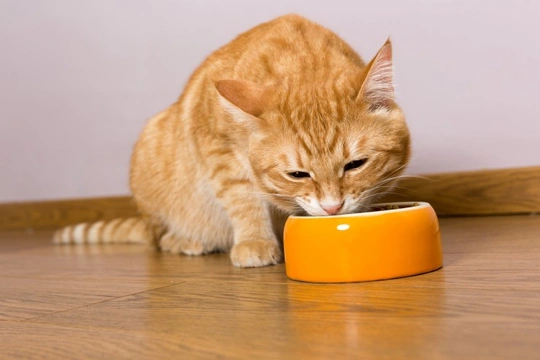
What to Feed Cats Suffering from Cancer
It is devastating when the vet tells an owner their beloved kitty has developed cancer, and more often than not making sure they eat enough can prove really challenging. When a cat's appetite starts to wane, it can be hard for owners because it brings up so many questions concerning the quality of their pet's life. It's so important to keep a close eye on how much food a sickly cat eats because they need all their energy to combat this terrible disease.
The first thing you need to do is discuss things with the vet who is treating your cat because it’s important that you identify which if any, of the medication they’ve been prescribed might suppress their appetites and if so, to find out whether there any alternative drugs your cat could take that would not affect their appetites. You should then ask the vet if there are any palliative treatments which might improve your pet's appetite, remembering that these would not offer any sort of cure, but simply stimulate their desire to eat and as such help keep them stronger.
Cancerous Cells Alter a Cat's Metabolism
Cancerous cells really mess up a cat's metabolism taking away all the goodness and energy that a cat would normally receive from their food and instead it feeds this to the cancer. On top of this cancers convert the build blocks of protein into energy which in turn causes muscle wastage. It compromises a cat's immune system which then slows down their much needed healing processes when they are already very weak. Studies have shown that cancerous cells don't seem to be that efficient at converting fat into an energy source which is something worth noting when considering what type of food to feed your cat.
Because of all these changes in a cat's metabolism, vets recommend that owners feed their feline companions a diet that's low in carbohydrates and in particular simple carbohydrates. Their diet needs to be high in protein and fat, but they need to be very digestible so a cat can easily absorb them. It's also important to include the right amount of fibre in their diet which helps maintain good bowel function. Too much fibre and it could dilute the goodness needed in their food. Vets also recommend that Omega-3 fatty acids be included in a cat's diet and they do so for two reasons which are as follows:
- Very good source of calories and fat
- They are thought to have anti-cancer properties
Although not many studies have been done into the dietary needs of a cat suffering from cancer, it would be fair to say that any diet that's low in carbohydrates and high in fat that contains good quality protein, is a great diet to feed to any cat that's gone off their food for whatever reason. It's the sort of diet that will reduce the risk of them losing too much weight when they are already unwell.
Commercially Produced Cat Food
Good quality commercially produced cat foods just about meet these dietary requirements, but tinned food is best because feeding just dry food would mean making sure your cat is drinking enough water, something that can be very hard to gauge at the best of times. However, it would not be fair to change a cat's diet too dramatically in one go especially when they are unwell. This needs to be done gradually with the guidance of your vet who may even recommend that you feed your pet specific home-made recipes that meet their dietary needs once they've been diagnosed as suffering from cancer.
Conclusion
It has to be a pet owner’s worst nightmare when the vet tells them their beloved cat has developed cancer. Making sure they eat enough food can be a real challenge because when cats lose their appetites it affects their general health which quickly goes downhill and this in turn can really affect the quality of their lives. By making sure you feed the right sort of diet to your sickly pet which means it has to be low carbohydrate yet high in protein and fat will help them keep on some of the condition. Vets also recommend that feeding Omega-3 fatty acids and the right levels of fibre to cats when they develop cancer can help them through a very difficult time.



